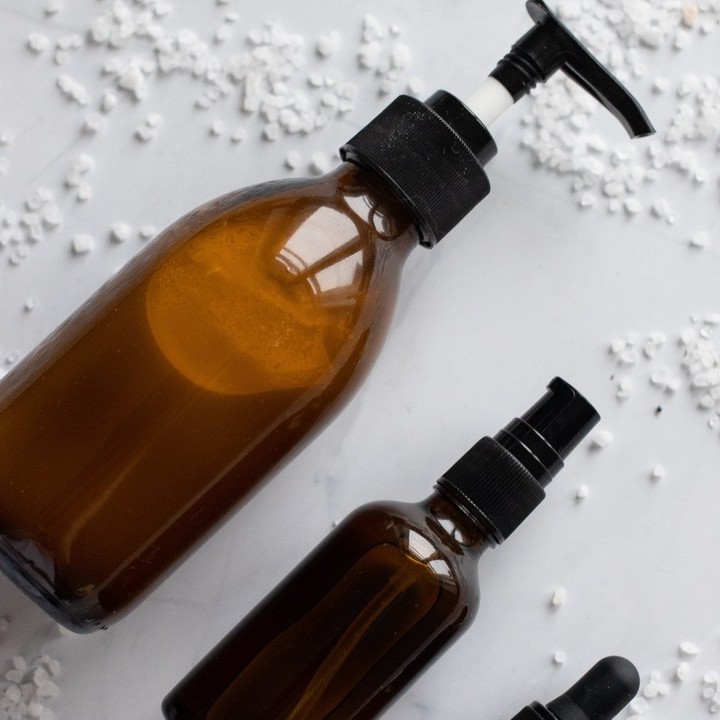
The Best Daily Routine for Treating Skin Pigmentation
The Best Daily Routine for Treating Skin Pigmentation
Skin pigmentation, whether hyperpigmentation or hypopigmentation, is a common concern that can impact one's confidence and overall skin health. Crafting an effective daily routine is paramount in addressing these concerns. This article explores the best practices, products, and treatments for a daily skincare routine specifically tailored to treat skin pigmentation issues.
Understanding Skin Pigmentation:
Before diving into the daily routine, it's essential to understand the mechanisms behind skin pigmentation. Melanin, the pigment responsible for skin color, can be unevenly distributed, leading to dark spots (hyperpigmentation) or lighter areas (hypopigmentation). Causes range from sun exposure and inflammation to hormonal changes and genetics.
Morning Routine:
A targeted morning skincare routine is crucial for addressing skin pigmentation issues effectively. Whether dealing with hyperpigmentation from sun exposure, age spots, or post-inflammatory hyperpigmentation, a well-crafted routine can fade dark spots, even out skin tone, and promote a clearer complexion. Here's a comprehensive guide to the morning routine for treating skin pigmentation:
1. Gentle Cleanser:
Begin your morning routine with a gentle cleanser. Cleansing is essential to remove any impurities, oil, or product residue that may have accumulated on your skin overnight. Opt for a mild, hydrating cleanser to cleanse without stripping the skin of its natural oils. Look for ingredients like glycerin or hyaluronic acid to maintain skin hydration.
2. Vitamin C Serum:
After cleansing, apply a vitamin C serum. Vitamin C is a powerful antioxidant known for its ability to brighten the skin, reduce pigmentation, and protect against environmental damage. It inhibits melanin production and promotes collagen synthesis, contributing to a more even skin tone. Choose a serum with a stable form of vitamin C, such as ascorbic acid, and apply it evenly to your face, neck, and décolletage. You can choose Biobalance Hello Clean Brightn Cleans Balm 100ml _ 01514
3. Niacinamide (Vitamin B3):
Incorporate a product containing niacinamide into your routine. Niacinamide, also known as vitamin B3, offers anti-inflammatory properties and helps to reduce hyperpigmentation. It regulates melanin production, making it an excellent addition to a routine targeting pigmentation concerns. Apply the product evenly to the skin, focusing on areas with pigmentation.
4. Sunscreen (SPF 30 or Higher):
Sun protection is paramount in treating and preventing pigmentation issues. Choose a broad-spectrum sunscreen with at least SPF 30 and apply it generously to all exposed areas, including your face, neck, and any other areas prone to pigmentation. Sunscreen protects the skin from harmful UV rays, preventing further pigmentation and allowing existing dark spots to fade. Reapply every two hours if you'll be spending an extended time outdoors.
5. Moisturizer:
Follow up with a non-comedogenic, hydrating moisturizer. Even if you have oily or combination skin, moisturizing is crucial to maintain skin hydration. Look for a product with ingredients like hyaluronic acid or glycerin to keep your skin moisturized without clogging pores. Applying moisturizer ensures that your skin barrier is intact and ready to face the day.
Morning Routine Recap:
Step 1: Gentle Cleanser
Step 2: Vitamin C Serum
Step 3: Niacinamide (Vitamin B3)
Step 4: Sunscreen (SPF 30 or Higher)
Step 5: Moisturizer
Additional Tips for Morning Skincare:
- Consistency is Key:
Stick to your morning routine consistently to see optimal results. Regular use of targeted ingredients will gradually fade pigmentation over time.
- Choose the Right Products:
Select skincare products with proven ingredients for treating pigmentation. Look for formulations with stable vitamin C, niacinamide, and broad-spectrum sunscreen.
- Be Patient:
Treating pigmentation is a gradual process. Results may take weeks to months, so patience is crucial. Consistent use of products and adherence to your routine will yield the best outcomes.
- Adjust Based on Sensitivity:
Monitor your skin for any signs of irritation or sensitivity. If you experience discomfort or excessive dryness, consider adjusting the frequency of product use or opting for formulations with lower concentrations.
- Consult a Dermatologist:
If you have persistent or severe pigmentation concerns, consider consulting a dermatologist. They can provide personalized advice, recommend prescription-strength treatments, or suggest professional procedures for more targeted results.
Afternoon Touch-up:
Sunscreen Reapplication:
If exposed to the sun, reapply sunscreen every two hours. Sun protection is crucial throughout the day.
Evening Routine:
- Cleansing:
Use a gentle cleanser to remove makeup, pollutants, and accumulated debris from the day.
- Exfoliation (2-3 times a week):
Incorporate chemical exfoliants with ingredients like alpha hydroxy acids (AHAs) or beta hydroxy acids (BHAs) to promote cell turnover and address uneven skin tone. You can choose Neostrata Resurface Foaming Glycolic Wash 125 ml
- Treatment for Hyperpigmentation:
Apply targeted treatments containing ingredients like hydroquinone, retinoids, or alpha arbutin to address hyperpigmentation. Consult a dermatologist for personalized recommendations.
- Moisturizer:
Use a moisturizer with ingredients like hyaluronic acid or glycerin to keep the skin hydrated and promote healing.
- Night Cream with Retinoids (2-3 times a week):
Integrate a night cream containing retinoids to further encourage skin renewal and fade dark spots.
Weekly Treatments:
- Chemical Peels:
Consider incorporating chemical peels into your routine, either through at-home products or professional treatments, to address pigmentation irregularities.
- Mask with Brightening Agents:
Use a mask containing brightening agents like licorice extract or kojic acid to enhance the effects of your daily routine.
Lifestyle Considerations:
- Diet:
Consume a balanced diet rich in antioxidants, vitamins, and minerals. Foods like berries, leafy greens, and fish contribute to skin health.
- Hydration:
Drink an adequate amount of water throughout the day to maintain skin hydration from within.
- Stress Management:
Incorporate stress-reducing activities like meditation or yoga, as stress can contribute to skin issues.
- Professional Consultation:
Dermatologist Visit:
Consult a dermatologist to determine the underlying causes of pigmentation issues and receive personalized treatment recommendations.
A daily routine tailored for treating skin pigmentation combines science-backed ingredients, consistent sun protection, and lifestyle considerations. The key is patience and commitment, as visible results may take time. Consulting with a dermatologist ensures that the routine is personalized, addressing specific skin concerns and promoting long-term skin health. With dedication to this comprehensive approach, individuals can embark on a journey toward a clearer, more radiant complexion.
 العربية
العربية





